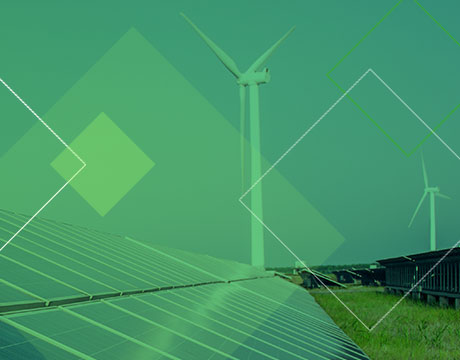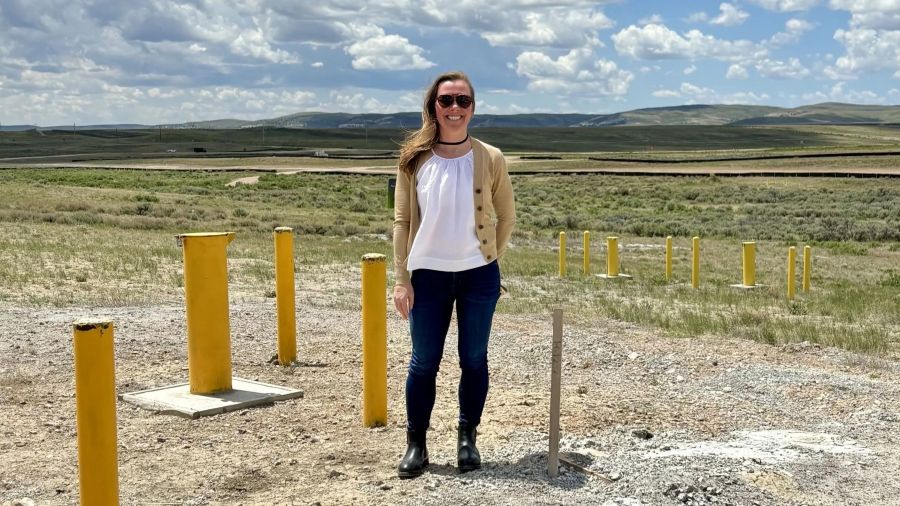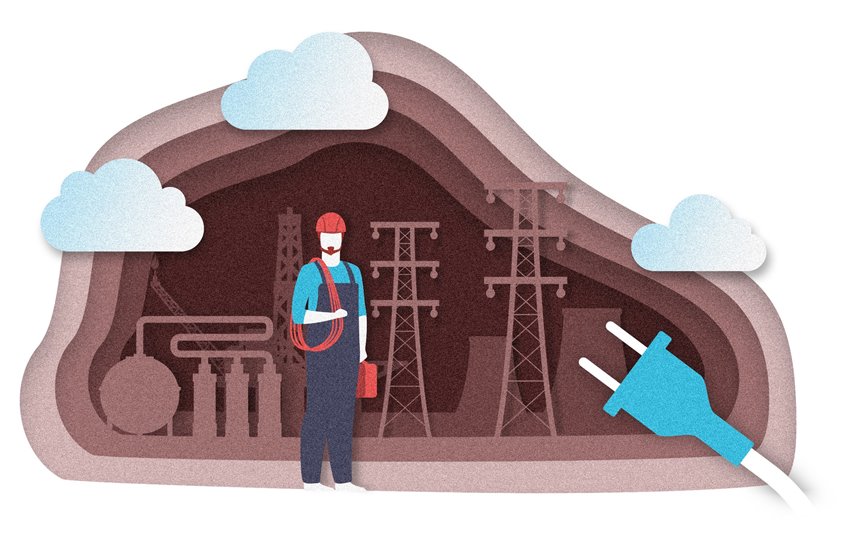Energy Blog: Millennials Will Save the World
Energy Blog: Millennials Will Save the World


When I was a college freshman, I had the remarkable opportunity to take an introductory-level social studies class taught by famed science fiction writer Chad Oliver. He would regale us with stories of the human condition that spanned centuries and continents. One lesson that hangs with me today is that all societies—no matter the time period, wealth, ethnicity, or location—have a few things in common. They all have rituals for the dead, such as burials or cremation. They all have other-worldly belief systems, such as religion, witchcraft, or superstitions.
And they all complain about the younger generation being lazy and insufficiently respectful of their elders.
It is from this perspective that I want to break with age-old human tradition to thank the Millennial and post-Millennial generations. As a professor who has taught thousands of teen and twentysomething students from around the world, I can tell you that they differ from my generation in one important way: They are better.
You May Also Like Global Talent Can Make American Industry Stronger
Back when I had just received my bachelor’s degree, my engineering school peers and I would swap info on our various job offers. Starting pay for good engineering students in the early 1990s was in the low $40,000s per year. Students presented with one offer that paid a salary of $40,000 and another that paid $42,000 would take the latter, no matter who the company was or what it did. All that mattered was the money.
Students today are different. In the United States, Millennials are the first generation who on average will earn less money than their parents. But the ones I know aren’t motivated by wealth the same way my college classmates were. Today’s new engineers are future-oriented and concerned about sustainability, and want to work for a company whose values align with their own. One of my students a few years ago turned down a starting job offer of more than $80,000 per year from a major oil and gas company to take a job that paid roughly $50,000 at a local green utility. In my generation, that was unheard-of.
Young people also are rushing to meet our global energy and environmental challenges. In ways both large and small, the Millennial and post-Millennial generations are working to save the world.
Youth often speak with greater moral urgency than older, supposedly wiser generations, who want to appear sensible and take things slowly enough to avoid upsetting the status quo. In the mid-20th century, for instance, student protesters engaged in civil disobedience, sit-ins, and freedom rides to animate and empower the Civil Rights movement. High school students who survived the 2018 massacre by gunfire in Parkland, Fla., mobilized a national gun safety movement.
Recommended for You: Give Us Freedom to Walk Bike
Today, hundreds of thousands of students around the world have been inspired by the example of 16-year-old Swedish schoolgirl Greta Thunberg to stage protests and school walkouts to demand immediate action to stave off the worst effects of climate change.
Time after time, younger generations have taken bold actions after they realize that it’s their own future at risk.
My students at UT Austin will carry the same water bottle around for a year to avoid wasting plastic. They will ride buses or bikes instead of driving. They see climate change much the same way their grandparents saw the Cold War: as a generational challenge and a multi-decade battle that must be won to protect our freedoms and prosperity.
It may be fashionable among certain (older) people to bad-mouth the attitude of Millennials and post-Millennials, in contrast to the can-do spirit of those past generations, but in my experience they are as hard-working and public-spirited as anyone.
Thank goodness. We need them. The energy and environmental challenges today’s young people face are every bit as stark as World War II and the Cold War. The causes are deeply embedded in the global economic system, and the effects impact everyone one way or another.
It’s naïve to think that youthful activism alone will save us from the long-lasting pollution of our past and present choices. But I’ll take the Millennial's can-do spirit over a turn-a-blind-eye, take-it-slow negligence any day.
Michael E. Webber is the Josey Centennial Professor of Energy Resources at the University of Texas in Austin and Chief Science and Technology Officer at ENGIE, a global energy company headquartered in Paris. His latest book, Power Trip: The Story of Energy, is published by Basic Books.
This article is reprinted from Mechanical Engineering magazine.
And they all complain about the younger generation being lazy and insufficiently respectful of their elders.
It is from this perspective that I want to break with age-old human tradition to thank the Millennial and post-Millennial generations. As a professor who has taught thousands of teen and twentysomething students from around the world, I can tell you that they differ from my generation in one important way: They are better.
You May Also Like Global Talent Can Make American Industry Stronger
Back when I had just received my bachelor’s degree, my engineering school peers and I would swap info on our various job offers. Starting pay for good engineering students in the early 1990s was in the low $40,000s per year. Students presented with one offer that paid a salary of $40,000 and another that paid $42,000 would take the latter, no matter who the company was or what it did. All that mattered was the money.
Students today are different. In the United States, Millennials are the first generation who on average will earn less money than their parents. But the ones I know aren’t motivated by wealth the same way my college classmates were. Today’s new engineers are future-oriented and concerned about sustainability, and want to work for a company whose values align with their own. One of my students a few years ago turned down a starting job offer of more than $80,000 per year from a major oil and gas company to take a job that paid roughly $50,000 at a local green utility. In my generation, that was unheard-of.
Young people also are rushing to meet our global energy and environmental challenges. In ways both large and small, the Millennial and post-Millennial generations are working to save the world.
Youth often speak with greater moral urgency than older, supposedly wiser generations, who want to appear sensible and take things slowly enough to avoid upsetting the status quo. In the mid-20th century, for instance, student protesters engaged in civil disobedience, sit-ins, and freedom rides to animate and empower the Civil Rights movement. High school students who survived the 2018 massacre by gunfire in Parkland, Fla., mobilized a national gun safety movement.
Recommended for You: Give Us Freedom to Walk Bike
Today, hundreds of thousands of students around the world have been inspired by the example of 16-year-old Swedish schoolgirl Greta Thunberg to stage protests and school walkouts to demand immediate action to stave off the worst effects of climate change.
Time after time, younger generations have taken bold actions after they realize that it’s their own future at risk.
My students at UT Austin will carry the same water bottle around for a year to avoid wasting plastic. They will ride buses or bikes instead of driving. They see climate change much the same way their grandparents saw the Cold War: as a generational challenge and a multi-decade battle that must be won to protect our freedoms and prosperity.
It may be fashionable among certain (older) people to bad-mouth the attitude of Millennials and post-Millennials, in contrast to the can-do spirit of those past generations, but in my experience they are as hard-working and public-spirited as anyone.
Thank goodness. We need them. The energy and environmental challenges today’s young people face are every bit as stark as World War II and the Cold War. The causes are deeply embedded in the global economic system, and the effects impact everyone one way or another.
It’s naïve to think that youthful activism alone will save us from the long-lasting pollution of our past and present choices. But I’ll take the Millennial's can-do spirit over a turn-a-blind-eye, take-it-slow negligence any day.
Michael E. Webber is the Josey Centennial Professor of Energy Resources at the University of Texas in Austin and Chief Science and Technology Officer at ENGIE, a global energy company headquartered in Paris. His latest book, Power Trip: The Story of Energy, is published by Basic Books.
This article is reprinted from Mechanical Engineering magazine.




